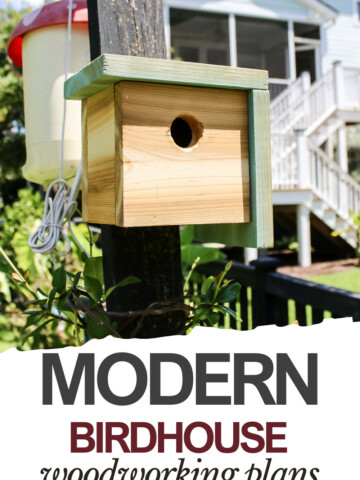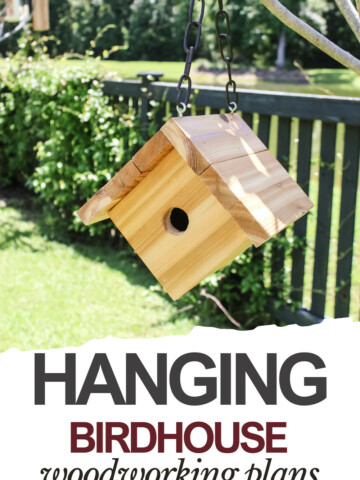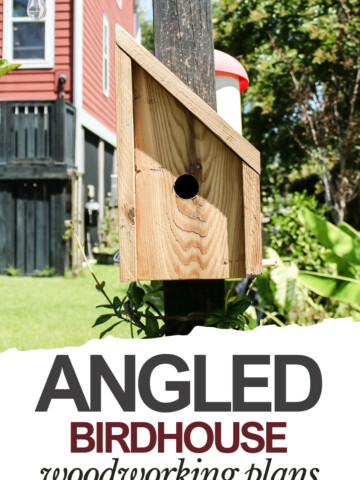Want to create a FREE liquid fertilizer for your plants? Here's how to make a banana peel fertilizer banana tea for your plants!
Everyone knows that plants need water and sunlight - but they also need nutrients. There are a lot of ways to give nutrients to your plants.
In our prior home, we had a compost bin. This compost bin, actually. I enjoyed giving our plants compost, but the bin was just too big and cumbersome (and honestly stinky and dirty) to move.
We haven't set up a new compost pile in the new house yet, but we did set up our raised bed garden.
A little research into small-scale compost solutions led me to the idea of compost tea, or at it's most simplest, banana peel tea for plants!
I have made this banana water for my plants three times now, each about a week and a half apart.
Our tomato plants are doing really well - very lush and producing lots of flowers (not quite to the tomatoes yet).
While I can't be sure what is the exact reason that our plants are doing well, the banana peel water for plants is definitely not hurting.
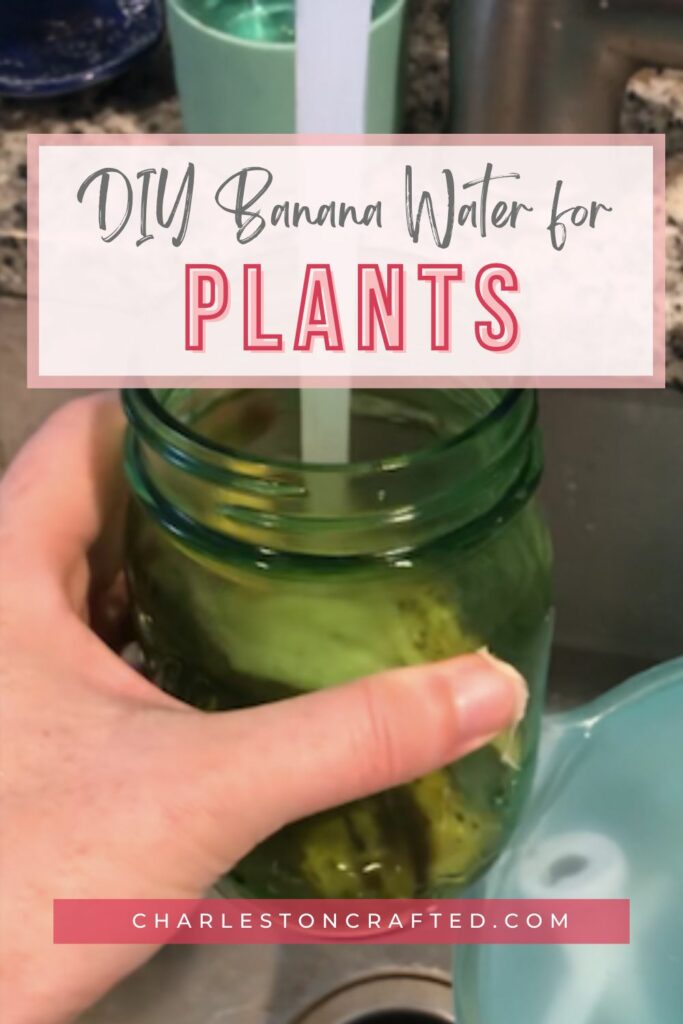
Are banana peels good for plants?
Bananas are known to be very high in potassium. Potassium is a key ingredient in many fertilizers. Potassium helps living things move water and nutrients between cells.
Potassium is an essential nutrient that is said to make plants stronger, flower or fruit more, and more drought-tolerant.
Bananas as said to be especially good for rose bushes as well as tomato plants, but they can be good for many garden plants that need more potassium.
Bananas are also a good source of calcium, which can be beneficial to many fruiting plants.
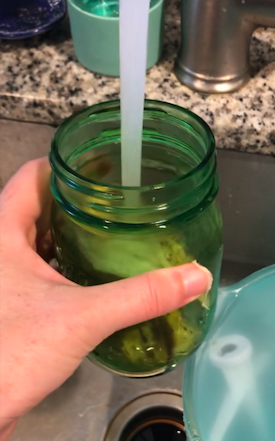
Banana peel uses in the garden
There are a lot of ways to use bananas and banana peels in your garden. You can make the banana peel tea, as I describe below.
You can always just throw the peels in your soil. They will decompose quickly and rain and watering will create a sort of version of the tea within your soil. But, they can also attract bugs and animals.
To avoid this, you can also put banana peels in the holes you dig to plant a plant, underneath the root ball. This will ensure that your plant absorbs the nutrients.
Some people claim that banana peels repel aphids, too, so it could be a potential simple solution if you have an aphid problem.
Which plants like banana peels?
Banana peels are especially good for plants that flower or fruit.
The following plants benefit from banana peels:
Tomatoes
Peppers
Roses
Air plants
Can I use banana water on indoor plants?
No, I would suggest that you do not use this banana fertilizer on indoor plants. While I think that the nutrient boost wouldn't hurt, the ripe banana peels can attract gnats and bugs, which you definitely don't want infesting inside your home.
How often should I water my plants with banana water?
Typically, you want to fertilize your plants once per month in the warm, growing months. I usually use banana tea fertilizer 2-3 times throughout the summer season.
A note about organic bananas
Bananas are known to be sprayed with a lot of pesticides. That spray goes on the peel. So, if you soak a banana peel in water, you're probably getting those pesticides.
For this reason, this is best done with organic bananas that were not treated with pesticides.

How to make banana peel fertilizer for tomatoes
Here's how easy it is to make a banana tea to fertilize your garden.
Supplies needed:
- Banana
- Mason jar
- Water

Steps to make banana tea for plants
It's super simple to make this DIY plant fertilizer at home.
STEP 1: Peel the banana
Peel your banana. Eat the banana. Or, you can freeze them for smoothies!
STEP 2: Put the peels in a jar
I place my peels in a standard sized mason jar.
STEP 3: Cover with water
Cover the whole peel with room temperature water
STEP 4: Let sit
Sit on the counter for two days to a week. It might get bubbly.
STEP 5: Remove the peel
Remove the peel and throw it away or compost it!
STEP 6: Water your plants
Use the banana water to water your plants!
How long do you leave banana peels in water for plants?
I have left my peels in water from 2 days to a week. After about 3 days, it starts to get bubbly and kind of weird. Banana peels decompose quickly so 2 days is definitely enough.
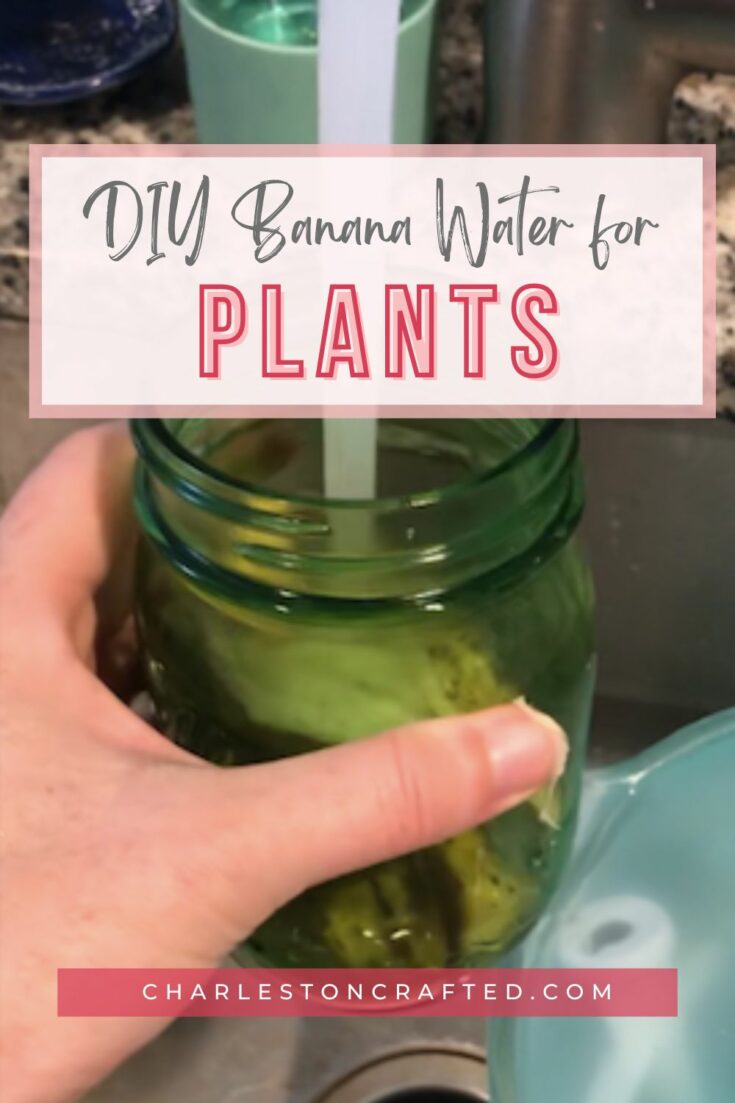
How to make banana peel fertilizer
Want to make an easy and free natural fertilizer for your plants? Here's how to make banana peel tea for plants!
Materials
- Banana
- Water
Tools
- Mason jar
Instructions
- Peel and eat your banana
- Place the peel in a jar
- Cover with room temperature water
- Let sit for 2-7 days at room temperature
- Remove the peel and compost it
- Pour the water on the soil around outdoor plants
Notes
Organic bananas are best to avoid pesticides
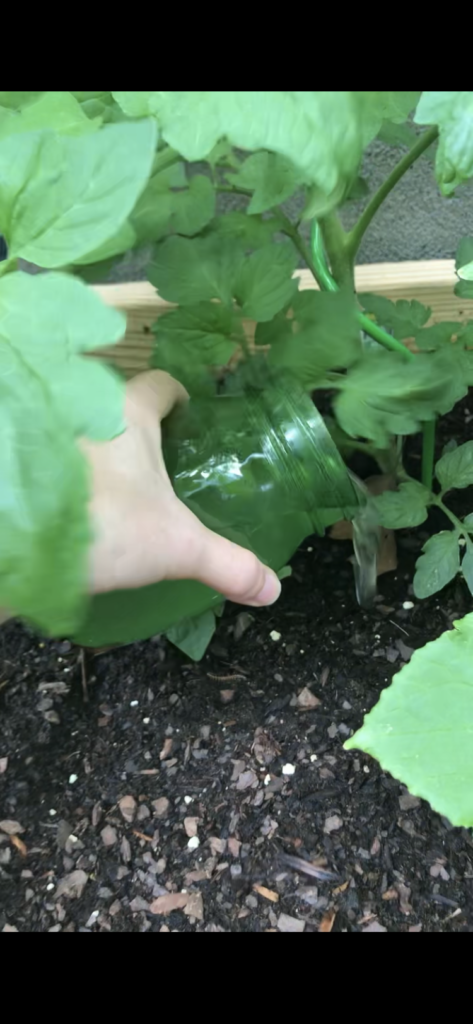
How often should I water my plants with banana water?
I have been watering my plants with banana water about once a week. I have only been making one mason jar's worth at a time so it's not much water.
I'd definitely try it on your plants, then wait at least a week to be sure there's no adverse reaction before doing it again. You never know!
It's worth noting that most "over fertilizing" is from putting too much nitrogen on plants, and bananas don't have nitrogen.
Want to show your houseplants some love?!
--> How to clean plant leaves
--> How to propagate a plant (free eBook!)
--> When to repot a plant
--> Rotating houseplants
--> When to cut leaves off of plants
Looking for something?
We've been doing this since 2012 so we have a LOT of blog posts!
Search stuff like: Ceiling Projects | DIY Plant Stands | Thrift Flips


Hello, I'm Morgan, half of the creative force behind CharlestonCrafted.com! With a passion for DIY that dates back to 2012, I've transformed three homes and now I'm dedicated to helping others craft their dream spaces. Let's turn your house into a home together!



